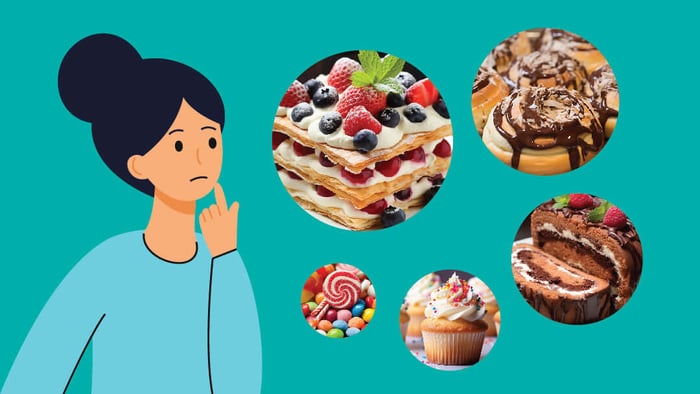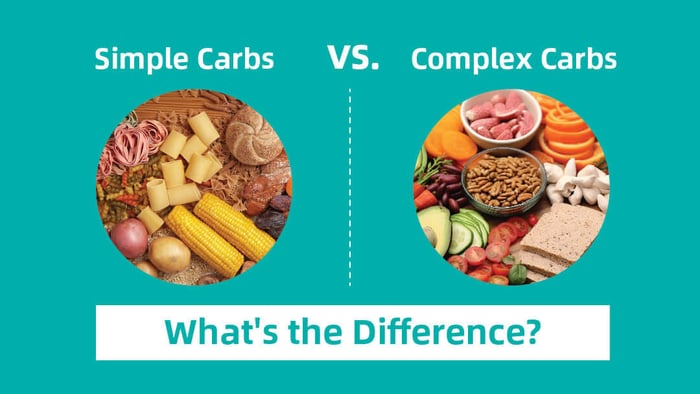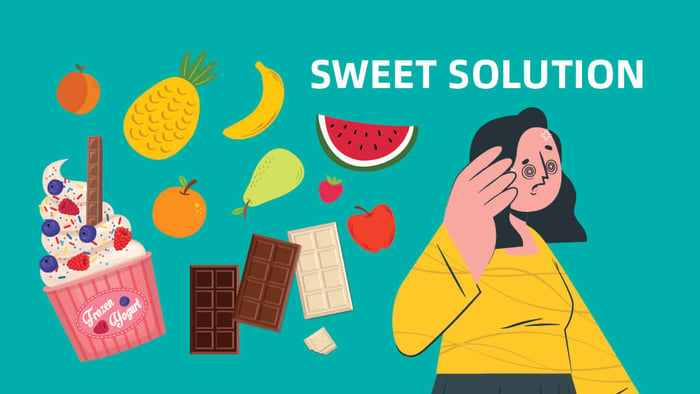Sugar is everywhere - in packaged foods, baked goods, beverages and even savory sauces. With its abundance and enticing sweet taste, it's no wonder many struggles with sugar cravings. But beyond taste buds, biology also plays a role in our attraction to sugar. Understanding the science behind sugar cravings is key to gaining control.
The Science Behind Sugar Cravings:
1. Evolutionary Perspective
Our evolutionary history plays a role in our cravings for sugar. In ancestral times, sweetness often indicated the presence of ripe fruits, which were an essential source of energy. Our taste buds evolved to detect and desire sweet flavors as a survival mechanism. In the modern world, where sugary foods are abundant, this evolutionary trait can lead to excessive sugar consumption.
2. Brain Chemistry
Sugar has a profound impact on the brain's reward system. Consuming sugar releases dopamine, a neurotransmitter associated with pleasure and reward. Over time, our brains can develop a tolerance to these dopamine releases, leading to an increased need for sugar to experience the same level of pleasure. This cycle can contribute to addictive-like behaviors around sugary foods.
Sugar also causes a spike in insulin, which quickly removes glucose from blood circulation. This sudden drop triggers feelings of hunger and fatigue, stoking further cravings. Chronically elevated insulin also hampers proper fat burning, setting up glucose rollercoasters.
Beyond dopamine and insulin, too much sugar is linked to an inflammatory state - one that may reduce production of serotonin, a chemical that stabilizes mood and appetite. Low serotonin further fans the flames of sweet tooth triggers.
3. Other Sugar Craving Contributors
- Diet also plays a role. Refined carbs lacking in fiber spike glucose high then crash low, causing rebound cravings. Highly processed Omega-6 fats from vegetable oils also correlate to more intense sugar cravings in research.
- Unhealthy gut bacteria thriving on a poor diet may signal the brain with hunger hormones like ghrelin.
- Stress and negative emotions are other common triggers.
How to Stop Sugar Cravings:
The following suggestions can help you take back control:
- Limit processed carbs and sugars to 50g daily max. Choose complex carbs with fiber to help lower glucose spikes.
- Supplement with soluble fiber to blunt rises in glucose. Flax, chia, vegetables and oatmeal aid satiety.
- Focus on protein, healthy fats and low glycemic fruits at meals to dampen cravings.
- Keep healthy snacks like nuts, vegetables, and cheeseon hand for hunger hits.
- Drink water before and during meals instead of caloric beverages.
- Manage stress with relaxing activities and a support system.
- Gradual reduction over time versus cold turkey prevents withdrawal effects.
- Consider probiotic and magnesium supplements to support mood and digestive balance.
- Change environments associated with sugar to break habits and cues.
- Incorporating glucose monitoring into your routine, it's not just about curbing sugar cravings – it's about understanding your body responds to sugar like never before.
The SIBIONICS GS1 Continuous Glucose Monitoring (CGM) System offers 24 hours x 14 days of continuous, real-time glucose monitoring without fingersticks or scanning. As a calibration-free home health monitor, the SIBIONICS CGM provides effortless tracking of interstitial fluid glucose levels every 5 minutes, day and night via the SIBIONICS App. Its waterproof design allows for seamless data collection during all daily activities. This invaluable insight helps curb sugar cravings by revealing post-meal spikes and dips tied to specific foods or habits.
Conclusion:
Understanding the factors driving our cravings for sugar empowers us to make conscious choices about our diet. By adopting a balanced approach to nutrition, staying hydrated, and managing stress, we can break free from the cycle of sugar dependence and pave the way for a healthier, more energetic lifestyle. Making small, sustainable changes can lead to long-term success in reducing sugar cravings and promoting overall well-being.
FAQs:
Q: What happens if you quit sugar completely?
A: Quitting sugar can lead to several positive changes in your body and overall well-being. Initially, you may experience withdrawal symptoms, including irritability, headaches, and cravings. However, as your body adjusts, you may notice increased energy levels, improved mental clarity, and better sleep. Eliminating added sugars can also contribute to weight loss, reduced inflammation, and a decreased risk of chronic diseases such as diabetes and heart disease.
Q: How do I know if I'm addicted to sugar?
A: Determining if you're addicted to sugar involves recognizing both physical and psychological signs. Physical signs may include intense cravings, withdrawal symptoms when sugar intake is reduced, and an escalating need for larger quantities to satisfy cravings. On a psychological level, you may find that sugar consumption dominates your thoughts, and attempts to cut back are met with difficulty.
Q: What vitamins help with sugar cravings?
A: Vitamins such as B vitamins, vitamin C, magnesium and chromium can help reduce sugar cravings by supporting a stable mood, energetic metabolism and balanced glucose levels. Zinc may also block the taste of sweetness, lessening sweet food appeal. Make sure to get these essential nutrients from whole foods as supplements may not provide identical support.
Q: What does sugar face look like?
A: There is no single appearance of "sugar face". However, a very high sugar intake over time can potentially age the skin through advanced glycation end products (AGEs) and inflammation, resulting in dullness, discoloration, wrinkles and loose elasticity. Quitting sugar may help reverse some of these effects by reducing oxidative stress and boosting collagen production.
Q: Does quitting sugar make you look younger?
A: Quitting sugar and processed carbs can help you look younger by improving skin quality, reducing inflammation throughout the body, balancing hormones, promoting better sleep habits and assisting weight loss - all of which may reveal a more youthful appearance over time when combined with healthy lifestyle choices.
SIBIONICS GS1 CGM-Continuous Glucose Monitoring System

€62,99
14-Days Continuous Glucose Monitoring Highly Accurate Sensor Readings Exportable AGP Reports Shareable Real-Time Glucose Data Customizable Glucose Alarm User-friendly App Calibration Free No Scanning IP28 Waterproof … read more







